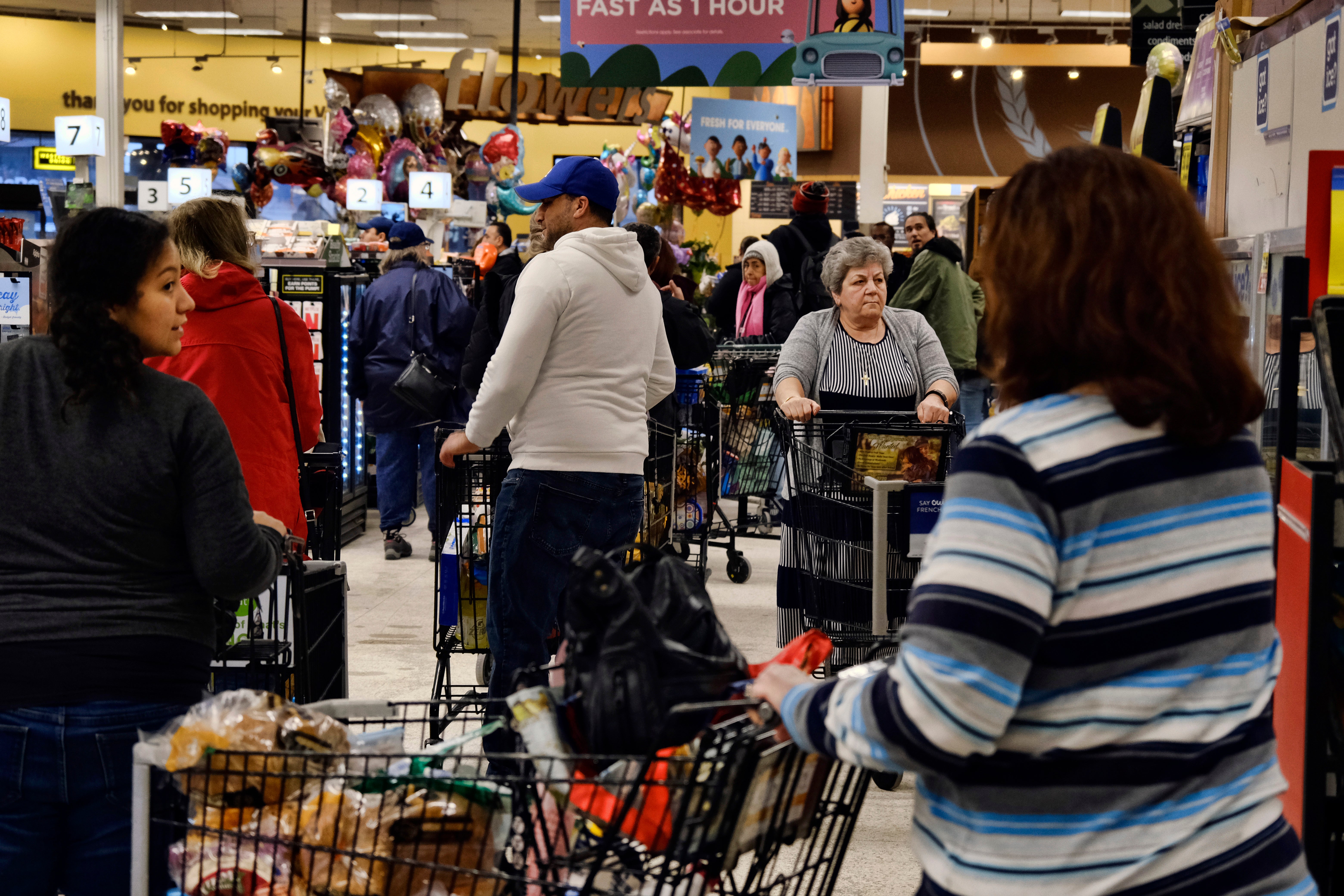California grocery workers vote to authorize strike
Thousands of central and Southern California grocery workers have voted to authorize their union to call a strike against several major supermarket chains

Your support helps us to tell the story
From reproductive rights to climate change to Big Tech, The Independent is on the ground when the story is developing. Whether it's investigating the financials of Elon Musk's pro-Trump PAC or producing our latest documentary, 'The A Word', which shines a light on the American women fighting for reproductive rights, we know how important it is to parse out the facts from the messaging.
At such a critical moment in US history, we need reporters on the ground. Your donation allows us to keep sending journalists to speak to both sides of the story.
The Independent is trusted by Americans across the entire political spectrum. And unlike many other quality news outlets, we choose not to lock Americans out of our reporting and analysis with paywalls. We believe quality journalism should be available to everyone, paid for by those who can afford it.
Your support makes all the difference.Thousands of central and Southern California grocery workers have voted to authorize their union to call a strike against several major supermarket chains as contract negotiations are set to resume this week.
About 47,000 workers at hundreds of Ralphs, Albertsons, Vons and Pavilions voted starting last week and the results were announced Sunday.
The possible walkout would involve grocery clerks, meat cutters, pharmacists and pharmacy technicians represented by seven locals of the United Food and Commercial Workers International Union.
No strike was immediately set. The union said talks would resume Wednesday and if bargaining breaks down again, it would decide what steps to take next.
Negotiations with Ralphs, owned by Kroger, and Albertsons, owner of Albertsons, Vons and Pavilions stores, ended without agreement before the latest three-year contracts expired March 6.
The union said the next day that the companies’ wage proposal amounted to a 60-cent increase that was “shockingly low” and well below workers’ cost-of-living needs. Employees were asking for a $5-an-hour raise, among other proposals.
“Both companies have refused to agree to expand safety committees in the stores, and have yet to negotiate meaningful health and welfare benefits,” a United Food and Commercial Workers statement said.
The union said that during the final day of negotiations it emphasized the essential role grocery workers played during the coronavirus pandemic.
The union said bargaining committee member Erlene Molina, a Ralphs employee, told company negotiators: “We saw how people were acting like the world was ending, but we could not stay home. We knew that we had an obligation to our community, so we showed up every day.”
The grocery chains didn't immediately comment Sunday on the strike authorization.
The Los Angeles Times reported that a Ralphs statement last Monday said the vote creates “unnecessary concern for our associates and communities, at a time when we should be coming together in good faith bargaining to find solutions and compromise. At Ralphs, we remain focused on settling a deal with the UFCW.”
Albertsons Companies said in a statement last week that the goal of the negotiation is “to provide our employees with a competitive total compensation package of wages, health, welfare and pension benefits.”
“We are committed to working collaboratively to ensure that we reach an agreement that is fair to our employees, good for our customers, and allows Albertsons, Vons and Pavilions to remain competitive in the Southern California market,” the statement said.
The union has not yet reached agreements with other supermarket chains, including Gelson’s, Stater Bros. Markets and Super A.
Employees of Ralphs, Vons, Pavilions and Albertsons in 2019 voted to authorize a strike, but contracts ultimately were reached without a walkout.
A 2003-04 strike and lockout put nearly 70,000 Southern California grocery workers on picket lines for more than four months.